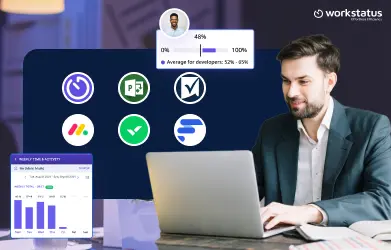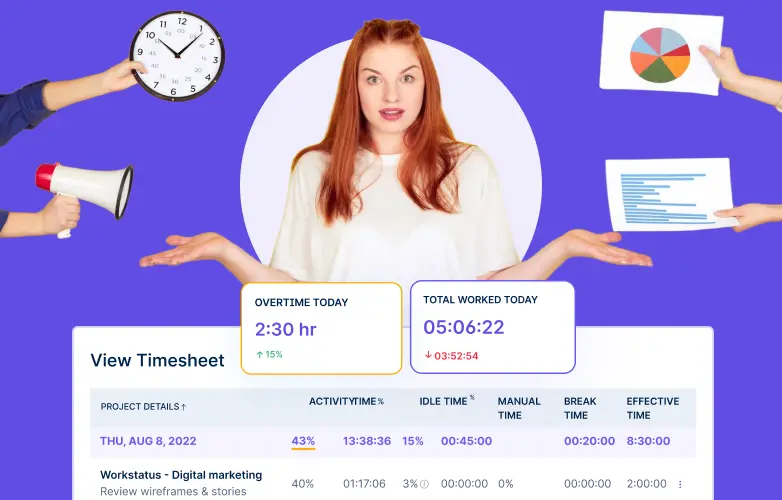Table of Contents
Introduction
Time theft is a silent productivity killer that affects businesses of all sizes.
Whether it’s excessive personal phone use, extended breaks, or buddy punching, time theft can have a significant impact on productivity.
Companies are constantly facing some severe issues due to time theft, such as:
- Increased labor costs
- Missed project deadlines
- Decreased productivity
- Inaccurate attendance records
- Disrupted workflow
Also, time theft can cost companies up to 7% of their payroll expenses.
However, there is a powerful tool that is transforming the way companies tackle this issue: Employee Monitoring Software.
This blog post will explore how employee monitoring software like Workstatus addresses time theft, improves accountability, and boosts productivity in the workplace.
Let’s dive in:
Understanding Time Theft
Time theft is a common workplace problem where employees misuse company time for personal activities or manipulate work hours.
It includes the following inappropriate activities or more, such as:
- Unauthorized breaks
- Buddy punching
- Prolonged lunches
- Personal errands
- Time card manipulation
- Excessive personal activities
Employers can tackle time theft by implementing employee monitoring software to improve accountability and create a more productive work environment.
What is Employee Monitoring Software?
Employee monitoring software is a tool that enables employers to track and monitor various aspects of employee activities in the workplace.
It provides insights into the key areas, such as:
- Employee productivity
- Attendance
- Internet usage
- Application usage
By monitoring these activities, employers can gain visibility into employee behavior to address potential issues or inefficiencies.
Automating Employee Monitoring with Workstatus
Workstatus is an advanced employee monitoring software that automates the tracking and analysis of employee activities in the workplace.
It offers a range of powerful features designed to enhance productivity, improve accountability, and streamline operations.
Some of its significant features include:
1. Time Tracking
Workstatus tracks employee work hours accurately, providing real-time visibility into attendance and time spent on tasks.
2. Productivity Monitoring
It measures employee productivity by tracking active and idle time, enabling employers to identify areas of improvement and optimize work processes.
3. Project Management
Workstatus offers project tracking and task management capabilities, enabling managers to assign tasks, monitor progress, and ensure timely project completion.
4. Application and Website Monitoring
It records the applications and websites that employees access, helping companies identify potential time-wasting activities or non-work-related internet usage.
5. Geolocation Tracking
Workstatus includes GPS tracking, enabling companies to monitor remote employees’ locations and ensure they work from designated areas.
6. Screenshots and Activity Logs
Employers can capture screenshots and access activity logs to review employee work patterns, ensure compliance, and identify any potential issues.
7. Reports and Analytics
Generate detailed reports and analytics, providing valuable insights into employee productivity trends, attendance patterns, and task completion rates.
With Workstatus, you can automate employee monitoring to make data-driven decisions to optimize workflows and resource allocation.
How Workstatus Tackles Time Theft
Here’s how you can overcome time theft challenges with Workstatus:
1. Tracking Attendance
Workstatus ensures accurate employee attendance tracking, providing real-time visibility into work hours and reducing potential time theft.
Accurate Time Tracking: You can automatically record employee work hours and attendance, eliminating manual errors and preventing time theft through false clock-ins or early clock-outs.
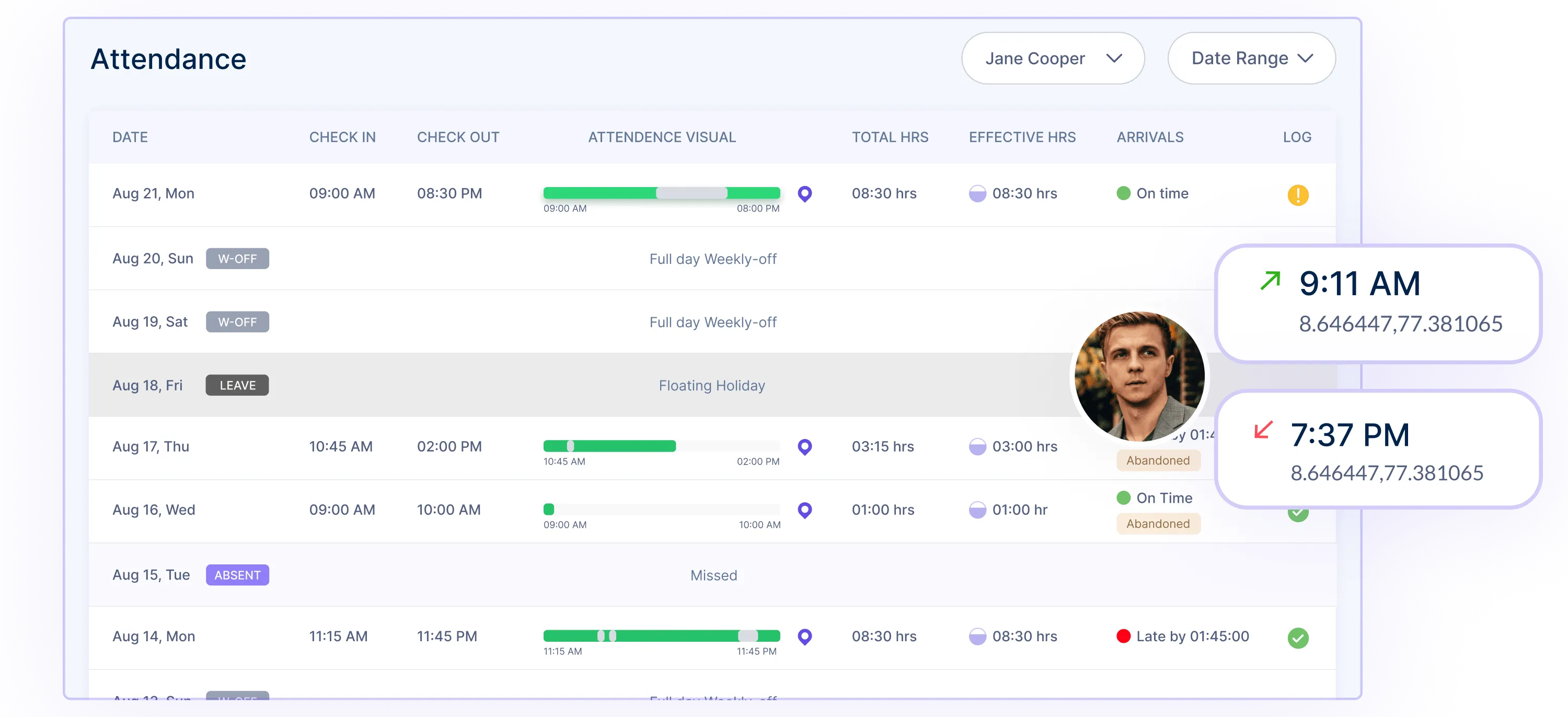
Geolocation Tracking: With GPS tracking, you can verify employee location, ensure they are physically present at designated work areas, and prevent time theft through unauthorized absences.
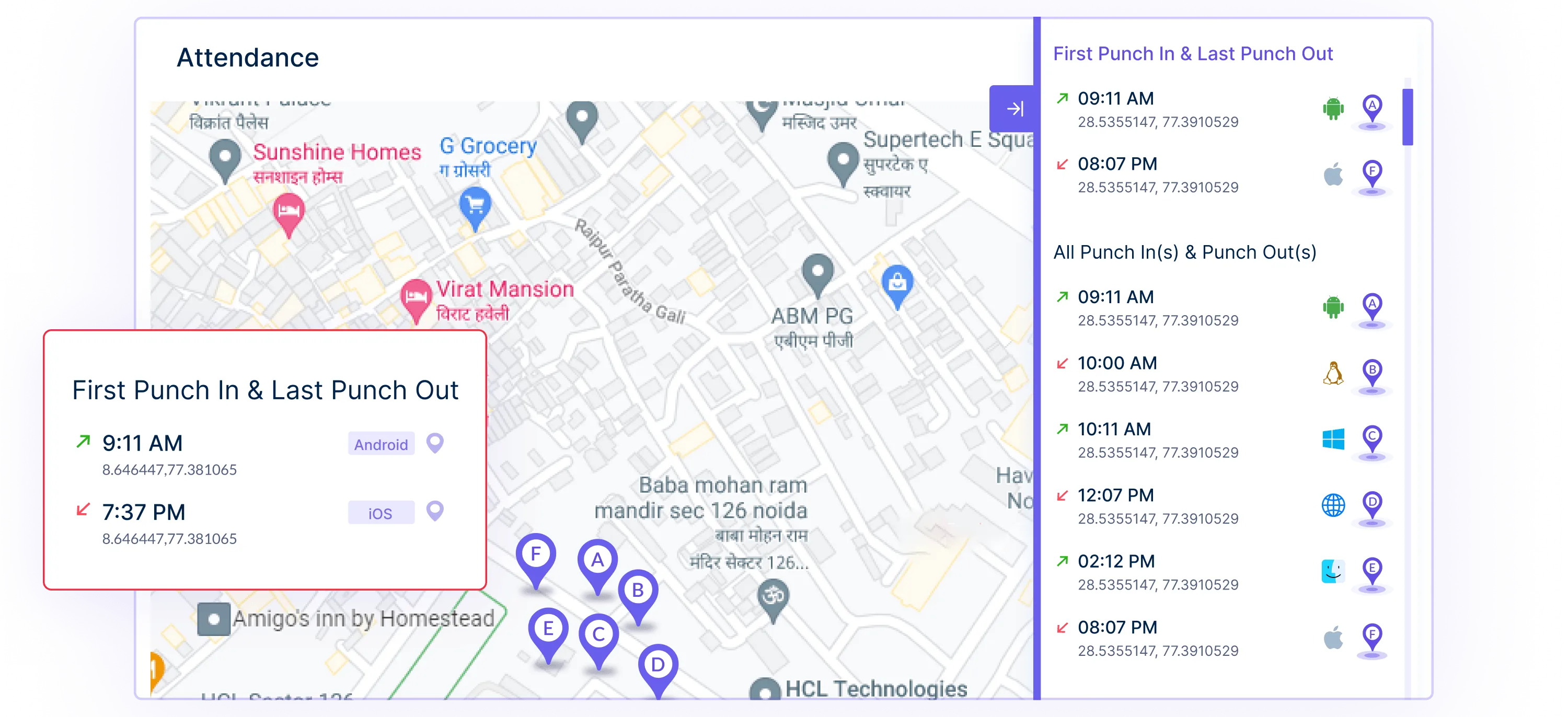
Shift Scheduling: Workstatus enables managers to create and manage shift schedules, ensuring proper coverage and reducing time theft related to unauthorized schedule changes.
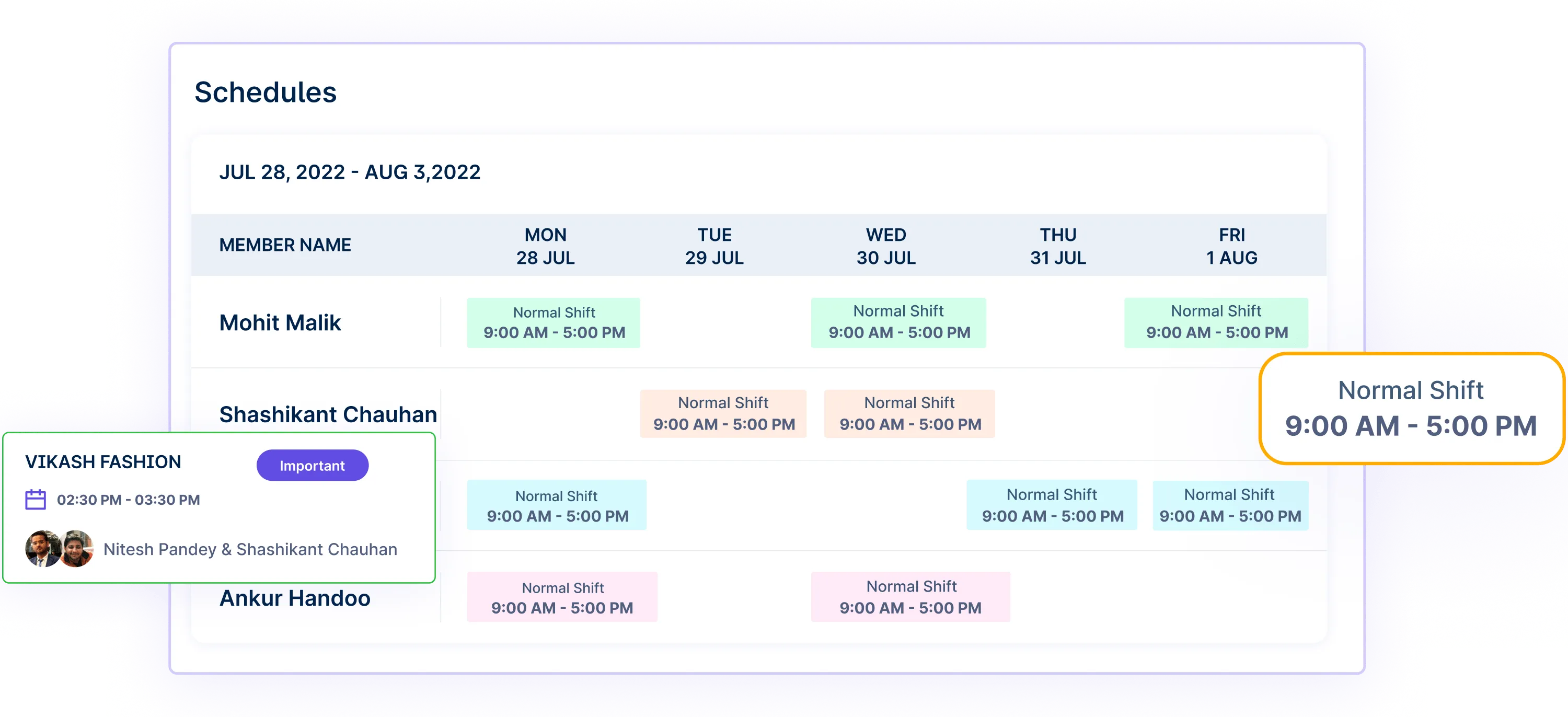
2. Monitoring Productivity
Workstatus enables businesses to identify and deal with unproductive behavior, minimizing the risk of time theft.
Active Time Tracking: Monitor employee activity levels, calculate productive time, and get insights into potential time theft or unproductive behavior.
Application and Website Monitoring: By tracking applications and websites, Workstatus helps identify excessive non-work-related activities contributing to time theft.
![]()
Project and Task Management: Workstatus enables managers to assign tasks, track progress, and set deadlines, keeping employees focused on productive work and reducing opportunities for time theft.
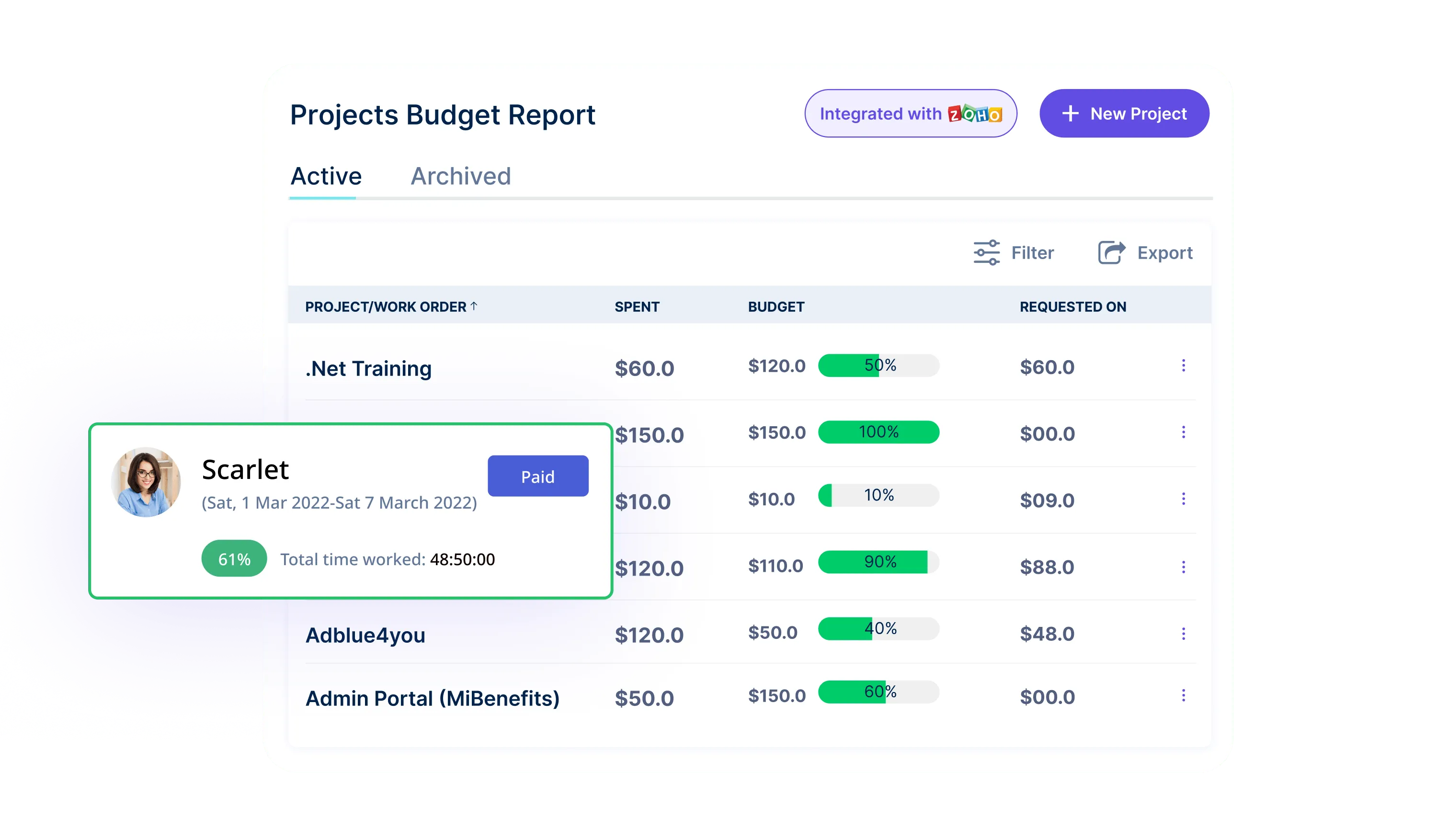
3. Preventing Time Misuse
Workstatus discourages time theft by implementing automated features like idle time tracking and enforcing time tracking policies, ensuring employees stay focused on work-related activities.
Automated Screenshots: Workstatus captures screenshots to ensure employees are engaged in work-related activities, discouraging time theft through personal activities or excessive distractions.
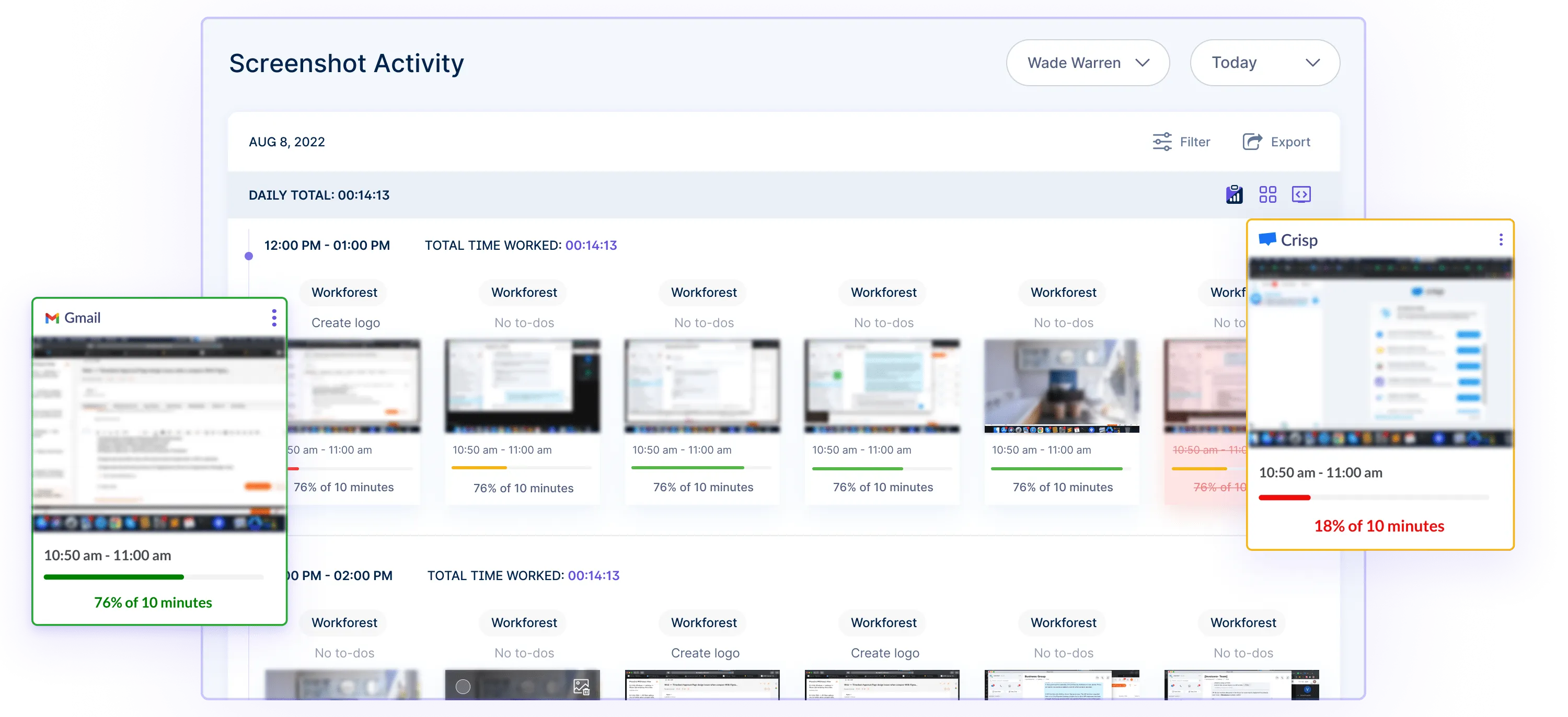
Idle Time Tracker: Monitors employee activity levels and identifies periods of prolonged inactivity or idle time, helping prevent time theft by addressing unproductive behavior.
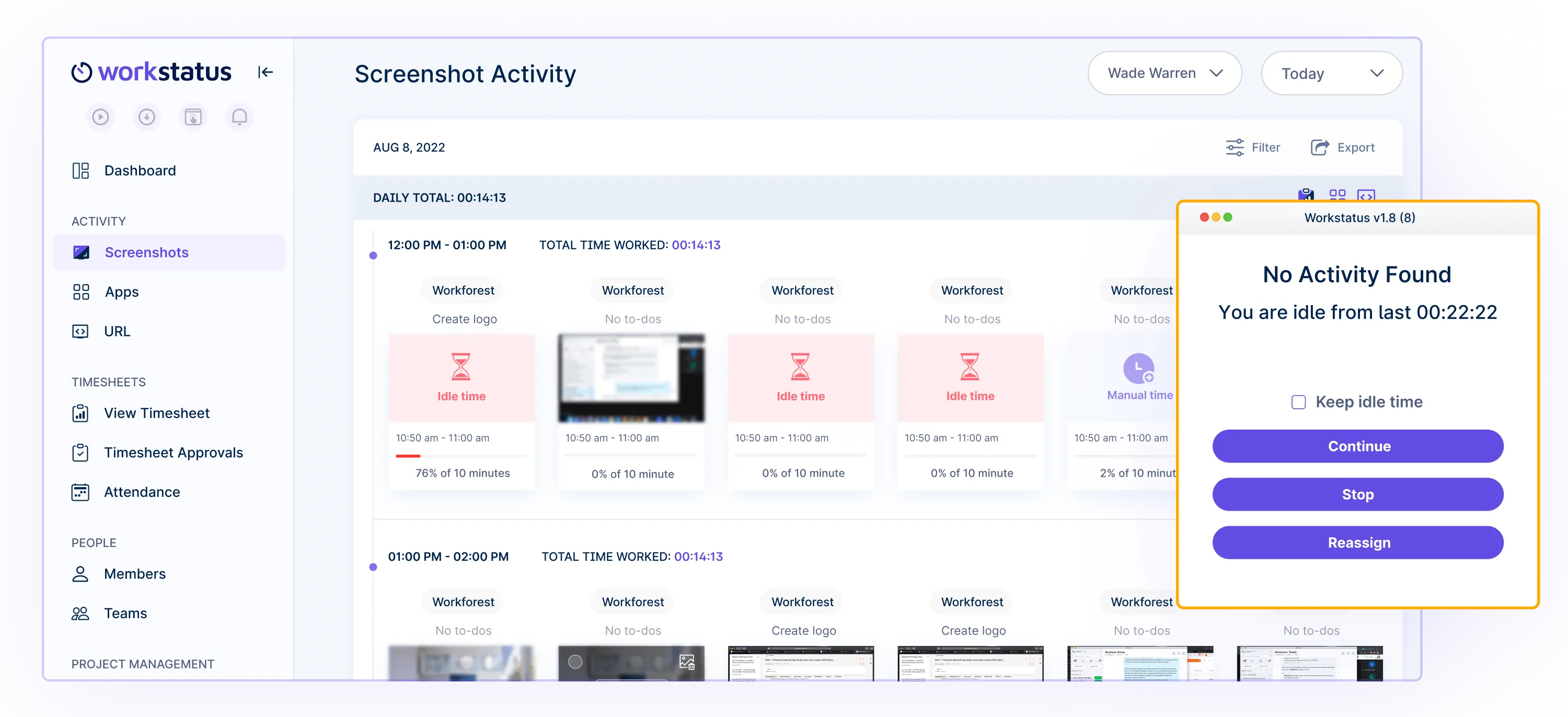
Automated Time Tracking Policies: Workstatus lets you set up time-tracking policies, such as minimum work time requirements or mandatory break times, to prevent time theft.
4. Real-Time Alerts And Notifications
Workstatus promptly notifies managers of attendance deviations, prolonged inactivity, or unauthorized absences, allowing timely intervention.
Inactivity Alerts: Workstatus alerts managers when an employee remains inactive for a specified period, helping identify potential time theft or unproductive behavior.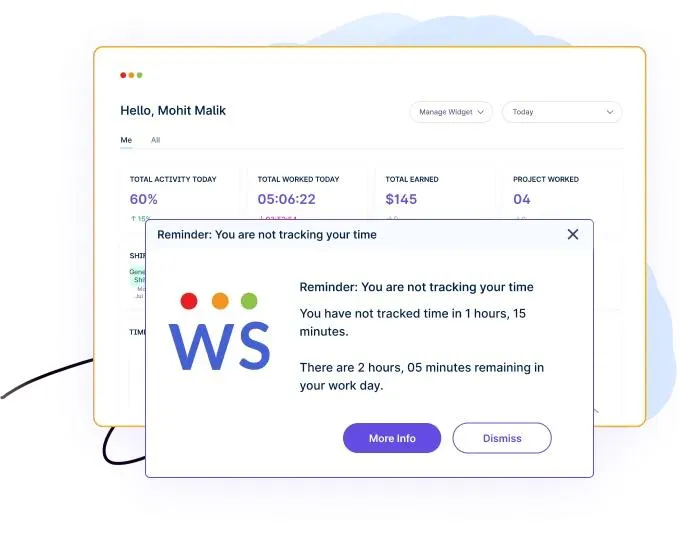
Attendance Deviation Notifications: Workstatus notifies managers when employees deviate from their scheduled work hours or locations, alerting them to possible time theft or unauthorized absences.
Overtime Monitoring: Tracks and alerts managers when employees exceed predefined overtime limits, preventing unapproved overtime hours.
5. Identifying and addressing patterns of time theft
Organizations can detect and address patterns of time theft, fostering a more accountable and productive work environment.
Data Analytics and Reports: Workstatus provides detailed reports and analytics on employee productivity, attendance, and time usage, helping identify patterns of time theft and enabling proactive measures to address the issue.
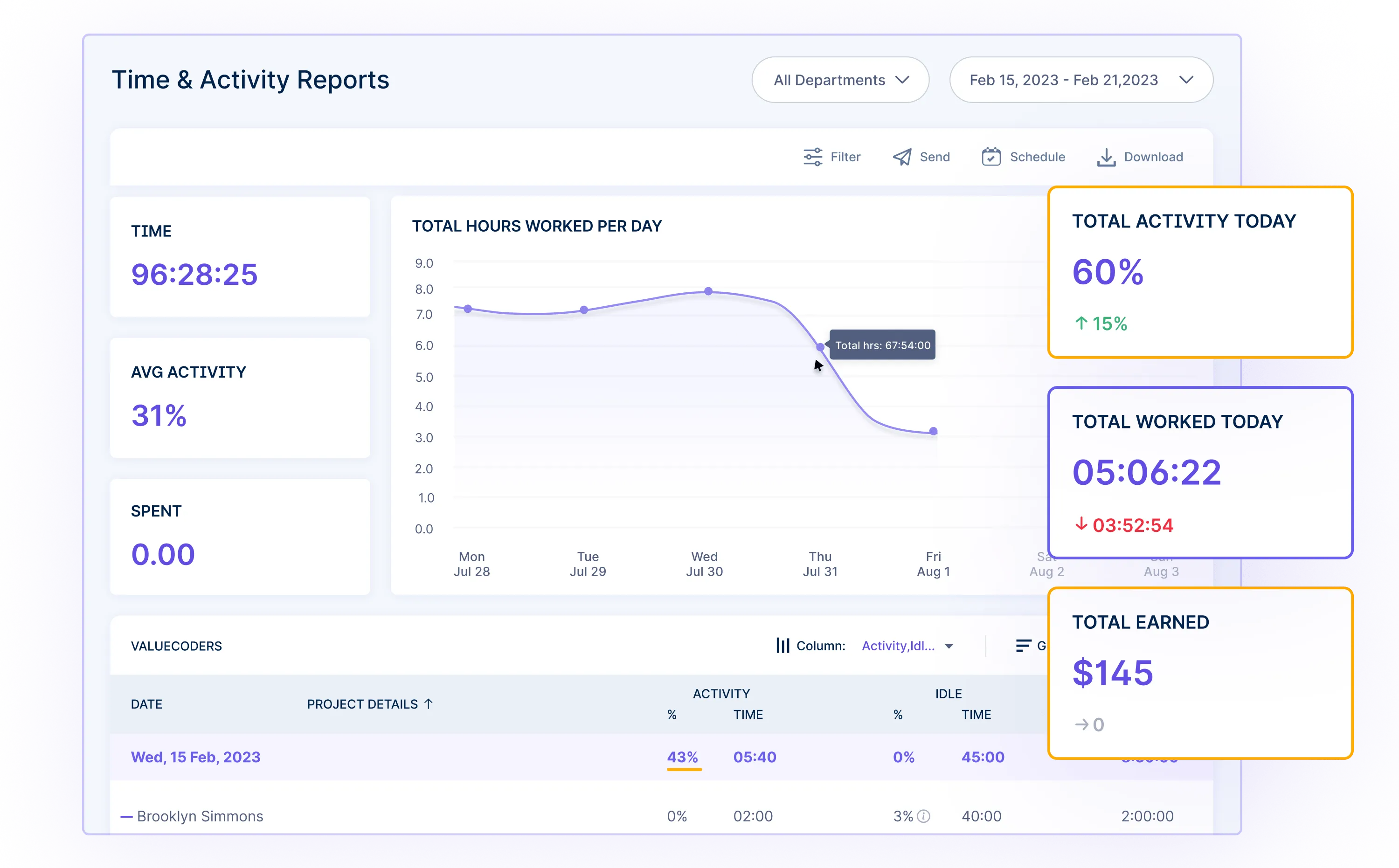
Customizable Rules and Alerts: Workstatus allows organizations to define custom rules and alerts based on specific time theft concerns, ensuring timely detection and intervention.
Employee Performance Evaluation: By analyzing individual employee performance data, Workstatus helps managers identify discrepancies, address time theft issues, and provide targeted training or guidance as necessary.
Case Studies for You!
Read the below infographics to know how Workstatus protected companies from time thefts, data breaches, and more.
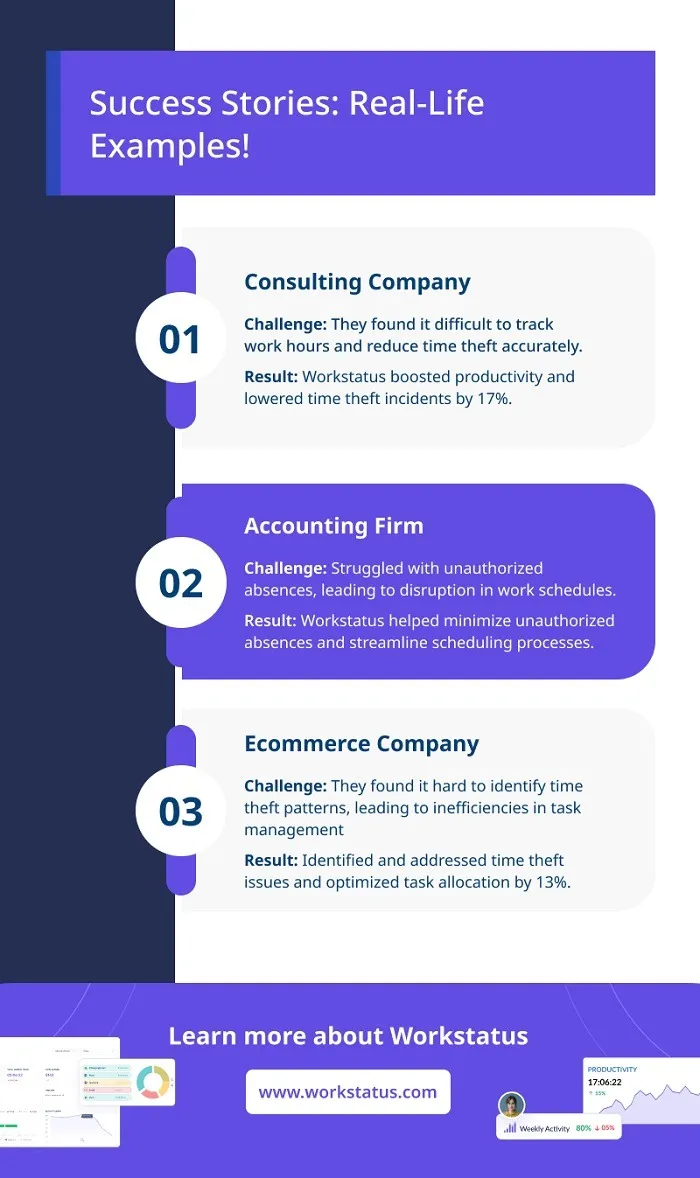 These success stories show the positive impact of Workstatus across various organizations.
These success stories show the positive impact of Workstatus across various organizations.
Solving Monitoring Challenges with Workstatus
1. Balancing employee privacy
Achieve a balance between monitoring and respecting employee privacy by:
- Maintaining transparent communication
- Clearly defining monitoring scope
- Handling personal information with confidentiality
2. Legal and ethical considerations
Workstatus complies with data protection laws and ensures data security.
Here are its data center certifications:
- ISO 9001 Quality management
- ISO 14001 Environmental management
- ISO 22301 Security and resilience
- ISO 27001 Information security management
- ISO 50001 Energy management
- SOC 2 Type II Data Security and Privacy
- PCI-DSS Information security
Workstatus supports ethical monitoring, considering privacy regulations and guidelines.
3. Bringing employees on board with Workstatus
Communicate the purpose and benefits of Workstatus.
Address concerns, provide training, and assure employees that monitoring aims to enhance productivity, not invade privacy.
4. Implementing effective policies and guidelines
Establish comprehensive policies that outline monitoring purposes.
Also, communicate the consequences for time theft or policy violations, ensuring clear expectations and fair monitoring practices.
Future Trends in Employee Monitoring Software
Here are the major future trends in employee monitoring software:
1. Advanced Data Analytics
Employee monitoring software will leverage more advanced data analytics to provide comprehensive insights into employee behavior, productivity patterns, and performance trends.
This will enable employers to make data-driven decisions for optimizing workflow and identifying areas for improvement.
2. Integration of AI and Machine Learning
Integrating AI and machine learning algorithms will enable the software to automatically detect patterns of inefficiency and potential time theft.
By learning from historical data, the software will become more adept at recognizing irregularities and suggesting proactive solutions to enhance productivity.
3. Focus on Employee Well-being and Work-Life Balance
Future employee monitoring software will emphasize not just tracking productivity but also monitoring employee well-being and work-life balance.
This could include features that encourage breaks, manage workloads, and promote a healthy work environment to prevent burnout and boost overall job satisfaction.
4. Customizable and Modular Solutions
A shift towards customizable and modular solutions will allow businesses to tailor their employee monitoring software to specific industry requirements and company policies.
This flexibility will enable organizations to choose the features that align with their monitoring needs while ensuring compliance with legal and ethical standards.
5. Integration with Remote Work Tools
As remote work continues to be a prominent work model, employee monitoring software will integrate seamlessly with various remote work tools and platforms.
This integration will facilitate comprehensive monitoring of remote employees, including their activities, task progress, and overall engagement, ensuring that productivity remains consistent regardless of the work location.
6. Emphasis on Data Security and Privacy
With growing concerns about data security and privacy, future employee monitoring software will prioritize robust encryption methods and strict privacy protocols.
This will reassure employees that their personal data is secure and only accessible to authorized personnel, fostering trust and transparency within the organization.
Closing Thoughts
Employee monitoring software is a powerful solution in combating time theft, the silent productivity killer affecting businesses.
By implementing software like Workstatus, you can effectively track attendance, prevent time misuse, and address patterns of time theft.
Indeed, employee monitoring software emerges as a valuable tool for businesses to tackle time theft head-on and unlock their full potential.
Ready to eliminate time theft?



